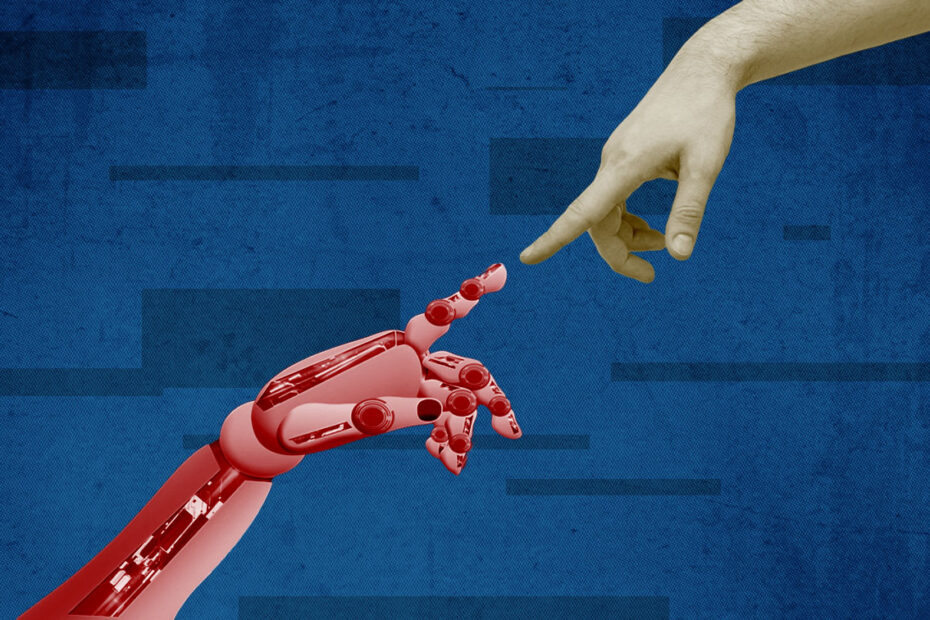By Judie Brown
Before the reader takes issue with my title, let’s make it clear that the words reflect the exact question I asked the first time a colleague said that word to me. Transhumanism, I said, cannot possibly be a word. But of course, it is, and it’s a mindset that is dangerous to boot.
To put a point on it, transhumanism is a direct challenge to the creator Himself. It is aptly described in these words written by Australian writer Michael Cook:
In 2004 the editors of the journal Foreign Policy asked several prominent intellectuals to identify the world’s most dangerous idea. Surprisingly political scientist Francis Fukuyama’s choice was transhumanism. He described it as a movement “to liberate the human race from its biological constraints.” Its supporters, he said, want to “wrest their biological destiny from evolution’s blind process of random variation and adaptation and move to the next stage as a species.”
If you read Fukuyama’s words carefully, you can readily see that in a world of people wedded to ideas such as transhumanism, there is no room for God. In fact, there is an absolute rejection of His omnipotent power. This is what makes the concept so dangerous. If you think I am defining our current cultural crisis, you already see where this commentary is headed.
We live in a nation that condones child killing by calling it choice and that accepts the elimination of the suffering by suggesting that those who do the deed are compassionate. We are in fact drowning in ideas that form the foundation of transhumanistic thinking.
Writer Scott Lively has put it in the right context, defining transhumanism as Luciferian (of the evil one). And Lively is not alone. Professor Dianne Irving has delved deeply into this subject, warning that in Transhumanism, all “matter” is evil, including the human body. She has written various articles about the subject, including “Why Transhumanism and Gnosticism are Anti-Catholic/Christian/Jewish.” In 2016 she explained how erroneous such theories are, though clearly her wisdom in this regard is not being advanced by those who believe that they themselves are the deity and do not have to accept the fact that God is the Author of everything, including our universe.
My goal in bringing this to your attention is to simply underscore the fact that as with anti-life practice, transhumanism is just another aspect of the devil’s devices designed to lead man away from absolute truth and into the hell that awaits anyone who buys the lies.
In an article entitled “Are You Just an ‘Ape-Brained Meatsack’ in Desperate Need of a Software Upgrade?” Michael Cook quoted a British author, who said: “The pill was the first transhumanist technology: it set out not to fix something that was wrong with ‘normal’ human physiology—in the ameliorative sense of medicine up to that point—but instead it introduced a whole new paradigm. It set out to interrupt normal in the interests of individual freedom.”
In another article, Cook explained how far transhumanism reaches, stating that “redefining human life is also the central theme of transhumanism.” He continued, “This explains why transgenderism (as well as homosexuality and redefining marriage) is so compatible with transhumanism.”
More specifically, transhumanism undermines the natural law. We see this contradiction when we read these words in Pope Paul VI’s brilliant encyclical Humanae Vitae: “The Church, nevertheless, in urging men to the observance of the precepts of the natural law, which it interprets by its constant doctrine, teaches that each and every marital act must of necessity retain its intrinsic relationship to the procreation of human life.”
Thus, thwarting this procreative power bestowed on human beings by God is an invitation to man to be God and to reject the power of the Creator God. That is transhumanism at its core.
Transhumanism is a direct challenge to God, and therefore it cannot stand. Exposing it is our job, lest souls be lost for all eternity because of man’s quest to be God.
NOTE: To begin understanding why natural law is foundational to justice and all that is good, please see Which Medical Ethics for the 21st Century? by Professor Dianne Irving (Part 2).
